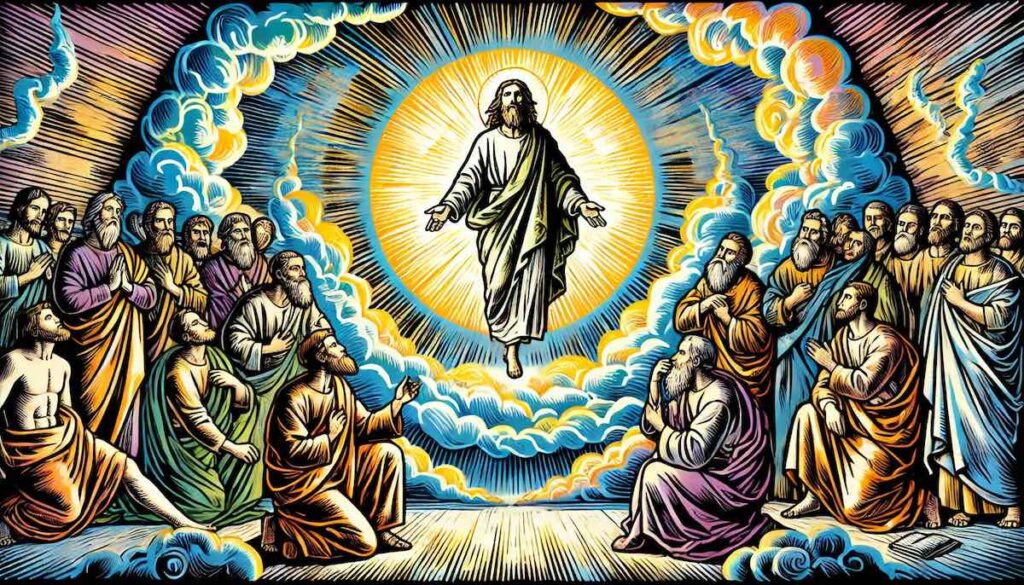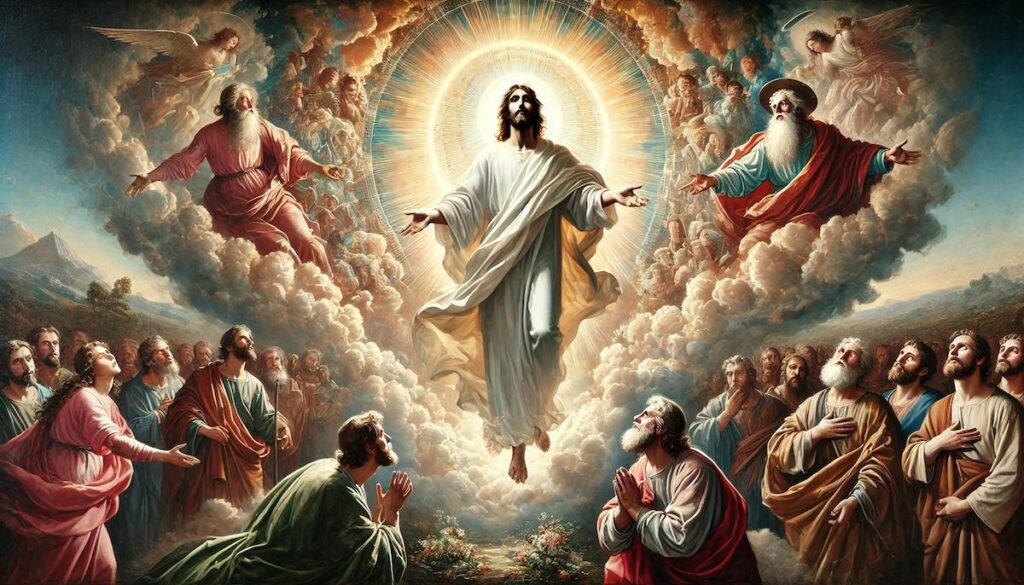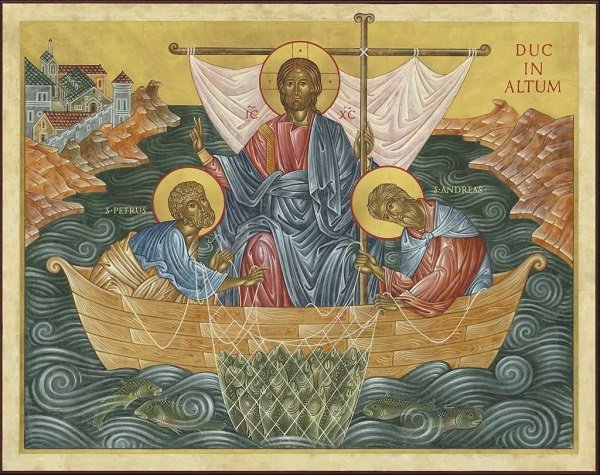Jesus Declares His Identity
The identity of Jesus has been a subject of contemplation and interpretation since His lifetime. People in His day tried to define His mysterious figure using familiar categories like Elijah, John the Baptist, or Jeremiah. However, Jesus didn’t directly claim titles such as Messiah for Himself, though His followers did. After Easter, fundamental titles like Christ, Kyrios (Lord), and Son of God began to emerge. This evolution of titles reflects a growing understanding of His divine nature, especially as early Christians grappled with defining Him in relation to God. Jesus declared His identity not through political or popular expectations, but by revealing a deeper truth through His teachings and actions.
In this post, we explore how Jesus declares His identity, with a focus on the title Son of Man, and how His use of this term reveals the unique nature of His mission.
The Titles of Jesus: An Evolving Understanding
During Jesus’ time, people sought to explain His identity by applying familiar titles. As Joseph Ratzinger, later Pope Benedict XVI, notes, “people tried to interpret his mysterious figure by applying to him categories that were familiar to them.” Titles like Christ (Messiah), Kyrios (Lord), and Son of God were used to describe Him. While Messiah made sense within a Semitic cultural context, the title quickly lost its function as merely a description of His role. Instead, it became part of His name: Jesus Christ.
Benedict emphasises that this shift conveys a deeper truth: “He is completely one with his office; his task and his person are totally inseparable from each other.” Jesus’ mission was not separate from His being; His identity and His purpose are unified in a way that is unique. This becomes even clearer as He declares Himself using another title: the Son of Man.
The Mystery of the Son of Man
Jesus frequently referred to Himself as the Son of Man, a term that is “mysterious” and used almost exclusively by Him. In fact, as Benedict observes, it is a title that occurs 14 times in the Gospel of Mark alone. Despite its frequent use by Jesus, the term was not commonly used by others during His time. The phrase is strikingly absent in the preaching of the Apostles, as their focus shifts to other titles, such as Kyrios and Christ.
But why does Jesus choose to refer to Himself in this way? As Benedict points out, the title Son of Man has deep roots in the Old Testament, particularly in the Book of Daniel, where it refers to a heavenly figure who represents a new kind of kingdom—a kingdom of salvation. “The Son of Man,” Benedict explains, “prophesies a totally new kingdom, a kingdom of ‘humanity,’ characterised by the real power that comes from God himself.”
The Son of Man and the Kingdom of God
The title Son of Man is not only prophetic but also profoundly linked to the future Kingdom of God. In Daniel’s vision, the Son of Man comes “with the clouds of heaven,” representing a divine figure who brings true salvation to the world, defeating the beasts of secular power. Jesus uses this title to show that His mission is not just about an earthly role, but about establishing a divine kingdom.
Benedict highlights this when he discusses how Jesus gradually reveals His identity. He is not merely pointing to an earthly kingship but to a much greater reality: “The beasts from the depths are confronted by the man from above.” This signifies the arrival of a new kingdom, where humanity is restored through God’s power.
The Lord of the Sabbath
One of the most important uses of the title Son of Man occurs in the context of the Sabbath. In Mark 2:28, Jesus declares, “The Son of Man is Lord of the Sabbath.”1 This claim astonished the people of His time because it implied divine authority. As Benedict explains, Jesus “places himself on the side of the Lawgiver, God; he is not an interpreter, but the Lord.” In this declaration, we see the immense weight of Jesus’ authority, claiming not only to understand God’s law but to define it.
Jesus reinforces this claim by linking the Son of Man with the Sabbath, not as a day of restrictive rules, but as a symbol of freedom and life with God. “The Sabbath was made for man,” Jesus says, “not man for the Sabbath” (Mark 2:27).2 The use of this title connects Jesus’ divine authority with His role as the bringer of freedom and new life.
The Son of Man and the Suffering Servant
While the Son of Man in Daniel represents a future kingdom, Jesus also ties the term to suffering and sacrifice. In Mark 10:45, Jesus says, “The Son of Man came not to be served but to serve, and to give his life as a ransom for many.”3 Benedict connects this statement to Isaiah’s Suffering Servant, demonstrating how Jesus identifies the Son of Man not just with power, but with service and suffering.
This unification of glory and suffering is central to Jesus’ mission. As Benedict writes, “The unity of suffering and ‘exaltation,’ of abasement and majesty, becomes visible.” Jesus shows that true kingship is not about dominance but about sacrificial love.
The Son of Man as Judge and Advocate for the Poor
In the Gospels, Jesus repeatedly speaks of the Son of Man coming in glory to judge the world. However, this judgment is tied to how people treat the poor and suffering. In Matthew 25:31-46, the Son of Man is depicted as identifying with the hungry, the sick, and the imprisoned. “As you did it to one of the least of these my brothers, you did it to me,” Jesus declares.4
This identification with the suffering is not just symbolic. Jesus Himself “had nowhere to lay his head” and experienced extreme suffering at the end of His earthly life. His passion and death reveal the true nature of the Son of Man: a figure who suffers alongside humanity, bringing salvation through His suffering.
The Unity of Cross and Glory
The title Son of Man encapsulates both the majesty and the humility of Jesus. As Benedict explains, “the inner unity of Cross and glory, of earthly existence in lowliness and future authority to judge the world,” becomes clear through this title. Jesus declares His identity in a way that reveals both His divine mission and His intimate connection to humanity.
By using the title Son of Man, Jesus weaves together various strands of Old Testament prophecy, showing that He is the fulfilment of both the promise of the coming kingdom and the suffering servant. His declaration is not just about revealing His identity but about showing the way to a new, transformed humanity—one that reflects God’s love and sacrifice.
See the other chapter reviews of the first volume on Jesus of Nazareth here.

Footnotes
- so the Son of man is lord even of the sabbath.” ↩︎
- And he said to them, “The sabbath was made for man, not man for the sabbath; ↩︎
- For the Son of man also came not to be served but to serve, and to give his life as a ransom for many.” ↩︎
- 31 “When the Son of man comes in his glory, and all the angels with him, then he will sit on his glorious throne. 32 Before him will be gathered all the nations, and he will separate them one from another as a shepherd separates the sheep from the goats, 33 and he will place the sheep at his right hand, but the goats at the left. 34 Then the King will say to those at his right hand, ‘Come, O blessed of my Father, inherit the kingdom prepared for you from the foundation of the world; 35 for I was hungry and you gave me food, I was thirsty and you gave me drink, I was a stranger and you welcomed me, 36 I was naked and you clothed me, I was sick and you visited me, I was in prison and you came to me.’ 37 Then the righteous will answer him, ‘Lord, when did we see thee hungry and feed thee, or thirsty and give thee drink? 38 And when did we see thee a stranger and welcome thee, or naked and clothe thee? 39 And when did we see thee sick or in prison and visit thee?’ 40 And the King will answer them, ‘Truly, I say to you, as you did it to one of the least of these my brethren, you did it to me.’ 41 Then he will say to those at his left hand, ‘Depart from me, you cursed, into the eternal fire prepared for the devil and his angels; 42 for I was hungry and you gave me no food, I was thirsty and you gave me no drink, 43 I was a stranger and you did not welcome me, naked and you did not clothe me, sick and in prison and you did not visit me.’ 44 Then they also will answer, ‘Lord, when did we see thee hungry or thirsty or a stranger or naked or sick or in prison, and did not minister to thee?’ 45 Then he will answer them, ‘Truly, I say to you, as you did it not to one of the least of these, you did it not to me.’ 46 And they will go away into eternal punishment, but the righteous into eternal life.” ↩︎



